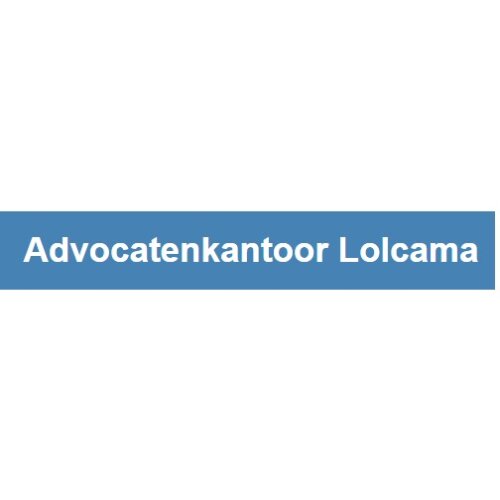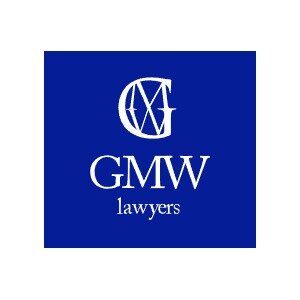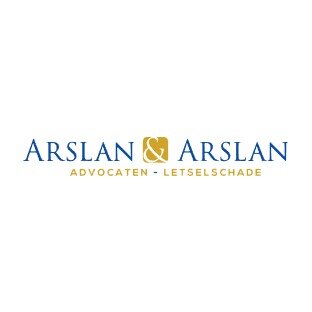Best Renewable & Alternative Energy Lawyers in The Hague
Share your needs with us, get contacted by law firms.
Free. Takes 2 min.
List of the best lawyers in The Hague, Netherlands
About Renewable & Alternative Energy Law in The Hague, Netherlands
Renewable and alternative energy law in The Hague, Netherlands, refers to the legal framework that governs the production, distribution, regulation, and use of sustainable energy sources such as solar, wind, biomass, geothermal, and hydropower. The Netherlands is actively working to transition away from fossil fuels, and The Hague represents a hub for policy decisions and innovative energy projects. Local initiatives and government targets support the adoption of green energy, and the legal landscape is designed to encourage individuals and businesses to participate in the shift to sustainable energy solutions.
Why You May Need a Lawyer
Legal support can be crucial in navigating the complex requirements and procedures associated with renewable energy projects. Individuals and businesses in The Hague may need a lawyer in situations that include:
- Applying for permits and meeting zoning regulations for renewable energy installations
- Drafting or reviewing contracts for solar panel leasing, wind energy purchase, or grid connections
- Resolving disputes with neighbors or local authorities about energy projects
- Accessing government subsidies, incentives, or grants for renewable energy initiatives
- Ensuring compliance with European Union directives and Dutch national energy policies
- Acquiring land or negotiating lease agreements for wind farms or solar fields
- Dealing with intellectual property rights relating to renewable technologies
A lawyer familiar with the local regulations and industry standards can help you reduce risks and maximize opportunities in this rapidly evolving field.
Local Laws Overview
The Hague operates within Dutch national law, but also has its own municipal policies and initiatives that impact renewable and alternative energy development. Key legal areas include:
- Energy Transition Policy: The Dutch Climate Agreement sets a target for a significant reduction of greenhouse gas emissions by 2030, driving local initiatives for sustainable energy in The Hague.
- Permitting and Zoning: Municipal permits are required for installing larger renewable energy systems, especially for wind turbines and solar farms. There are strict placement and technical requirements to ensure public safety and minimal disruption.
- Subsidies and Incentives: The Netherlands provides national subsidies, such as the SDE++ scheme, as well as local incentives for households and businesses investing in renewable energy.
- Grid Connection and Access: Local energy laws offer guidelines for connecting renewable energy sources to the public electricity grid and clarify responsibilities between producers and network operators.
- Community Participation: Energy cooperatives and community-owned projects are encouraged, with legal provisions for citizen involvement in local energy decisions.
Legal requirements can change rapidly, so it is important to consult updated municipal and national legislation or seek legal assistance when planning a renewable energy project.
Frequently Asked Questions
What types of renewable energy projects are common in The Hague?
The most common projects include rooftop solar panels for residences, small to medium-scale wind turbines, geothermal heating installations, and initiatives from local energy cooperatives.
Do I need a permit to install solar panels in The Hague?
Small-scale rooftop solar panels typically do not need a municipal permit, but larger or non-standard installations may require one, especially in protected heritage zones or on commercial properties.
What are the main subsidies available for renewable energy?
The Dutch government offers support through programs such as SDE++ for businesses and ISDE for individuals, as well as tax benefits like the Energy Investment Allowance. Local incentives may also be available.
Am I allowed to feed surplus electricity back into the grid?
Yes, residents and businesses can generally supply surplus renewable electricity to the public grid and benefit from the net metering system, subject to grid capacity and connection agreements.
How do local zoning laws affect where I can place wind turbines or solar panels?
Zoning laws dictate where renewable energy facilities can be installed, considering factors such as noise, aesthetics, heritage protection, and safety. Consultation with the municipality is essential.
Do energy cooperatives have special legal status in The Hague?
Yes, cooperatives are recognized legal entities and often enjoy benefits, including simplified procedures for small-scale local projects and eligibility for collective subsidies.
What are my responsibilities if I own a renewable energy installation?
Owners are responsible for compliance with safety standards, reporting energy production when required, maintaining installations, and managing contracts with energy sellers or the grid operator.
Can I get legal help for renewable energy disputes?
Yes, lawyers experienced in energy law can assist with disputes involving neighbors, suppliers, contractors, local authorities, or grid operators related to renewable energy projects.
How can I appeal a denied permit for a renewable energy project?
If your permit application is denied, you can appeal to the municipality. If necessary, further appeals can be made to the provincial or national administrative courts with legal support.
Are there any requirements for environmental assessments?
Larger renewable projects may be subject to environmental impact assessments under Dutch and EU law. The necessity and scope depend on the project's size and location.
Additional Resources
Several organizations and governmental bodies in The Hague and the Netherlands support renewable and alternative energy development, including:
- Municipality of The Hague (Gemeente Den Haag) - offers guidance on permits, local policies, and sustainability initiatives
- Netherlands Enterprise Agency (RVO) - manages national subsidy programs and provides information for entrepreneurs and individuals
- Dutch Ministry of Economic Affairs and Climate Policy - responsible for national energy transition strategy and policy
- Netbeheer Nederland - represents grid operators and explains technical aspects of grid access and feed-in
- Local energy cooperatives and citizen initiatives - offer support for collective renewable energy projects
- Legal aid organizations and specialized law firms - provide advice on regulatory compliance and dispute resolution
Next Steps
If you need legal assistance with a renewable or alternative energy issue in The Hague, you can take the following steps:
- Define your situation clearly, including your goals and any current challenges or disputes
- Gather all relevant documents, such as contracts, correspondence, permit applications, and policy notices
- Consult free resources or initial legal aid services offered by the municipality or local legal clinics
- Contact a lawyer or law firm with expertise in Dutch and municipal renewable energy laws
- Ask about experience with similar cases, typical fees, and potential strategies to achieve your objectives
- Collaborate with professionals throughout the process to ensure compliance and maximize support from available incentives
The rapidly growing renewable energy sector offers many opportunities and also new legal challenges. By seeking timely legal advice, you can protect your interests and contribute to a more sustainable future in The Hague.
Lawzana helps you find the best lawyers and law firms in The Hague through a curated and pre-screened list of qualified legal professionals. Our platform offers rankings and detailed profiles of attorneys and law firms, allowing you to compare based on practice areas, including Renewable & Alternative Energy, experience, and client feedback.
Each profile includes a description of the firm's areas of practice, client reviews, team members and partners, year of establishment, spoken languages, office locations, contact information, social media presence, and any published articles or resources. Most firms on our platform speak English and are experienced in both local and international legal matters.
Get a quote from top-rated law firms in The Hague, Netherlands — quickly, securely, and without unnecessary hassle.
Disclaimer:
The information provided on this page is for general informational purposes only and does not constitute legal advice. While we strive to ensure the accuracy and relevance of the content, legal information may change over time, and interpretations of the law can vary. You should always consult with a qualified legal professional for advice specific to your situation.
We disclaim all liability for actions taken or not taken based on the content of this page. If you believe any information is incorrect or outdated, please contact us, and we will review and update it where appropriate.










